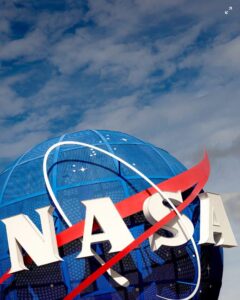NASA offers a wide range of career opportunities across various fields. below are the detailed information which we have mentioned below for your reference
Aerospace Engineers: Aerospace engineering is a fascinating field that involves the design, development, and testing of aircraft, spacecraft, satellites, and missiles. Aerospace engineers work on a wide range of projects, from designing commercial airplanes to creating cutting-edge space exploration vehicles. They use principles from physics, mathematics, and engineering to solve complex problems related to flight and space travel.
Astrophysicists: Astrophysics is a branch of astronomy that deals with the physical properties and processes of celestial objects and phenomena. Astrophysicists study the universe at large, including galaxies, stars, planets, black holes, and the interstellar medium. They use principles from physics, mathematics, and computational science to understand how these objects and systems work. Astrophysicists often specialize in areas such as stellar astrophysics (studying stars), galactic astrophysics (studying galaxies), cosmology (studying the origin and evolution of the universe), planetary science (studying planets and planetary systems), and high-energy astrophysics (studying phenomena like black holes and supernovae).
Astronauts: Conduct space missions, research, and experiments aboard spacecraft. Astronauts typically have advanced degrees in fields like engineering, physics, mathematics, or biological sciences. A strong foundation in these subjects is crucial for understanding the technical aspects of space missions.

Dreaming of the Stars: My Journey to NASA at 21
Computer Scientists: A computer scientist is a professional who specializes in the study of computers and computational systems. They are involved in the design, development, analysis, and application of software and hardware systems. Computer scientists work on a wide range of areas, including programming languages, algorithms, artificial intelligence, data science, computer networks, cybersecurity, and more.
Earth Scientists: Earth scientists are professionals who study various aspects of the Earth, including its structure, processes, history, and the interactions between its different components such as the atmosphere, hydrosphere, biosphere, and lithosphere. They use a combination of fieldwork, laboratory analysis, and computer modeling to understand phenomena like earthquakes, volcanoes, climate change, natural resources, ocean currents, and geological formations. Earth scientists can specialize in disciplines such as geology, meteorology, oceanography, climatology, environmental science, and more, depending on their specific area of interest and expertise.
Mechanical Engineers: Mechanical engineers are professionals who design, develop, and analyze mechanical systems and devices. They apply principles of physics, mathematics, and material science to create machinery and structures that serve various purposes across industries. Mechanical engineers work in various industries such as automotive, aerospace, manufacturing, energy, robotics, and HVAC (heating, ventilation, and air conditioning). They play a crucial role in innovation, problem-solving, and the advancement of technology.
Biologists: Biologists are scientists who study living organisms and their interactions with the environment. They investigate a wide range of biological phenomena, from the molecular level to ecosystems and the biosphere as a whole. Biologists often specialize in specific areas of study. Biologists use various techniques and tools in their research, including laboratory experiments, fieldwork, microscopy, molecular analysis, bioinformatics, and statistical modeling. Their work contributes to advancements in medicine, agriculture, environmental protection, biotechnology, and our understanding of life on Earth.
Physicists: Physicists are scientists who study the fundamental principles governing the behavior of matter and energy in the universe. They use mathematical models, experimentation, and theoretical frameworks to understand and explain natural phenomena at different scales, from subatomic particles to galaxies. Physicists often specialize in specific areas of physics,
Data Scientists: Analyze large datasets from space missions, satellites, and telescopes to extract meaningful insights.
Project Managers: Oversee space missions, budgets, schedules, and teams to ensure successful outcomes.

Dreaming of the Stars: My Journey to NASA at 21
along with NASA also hires professionals in fields like cybersecurity, communications, finance, human resources, and more to support its mission of space exploration, scientific research, and aeronautics advancement.
How to Prepare from Childhood to work with NASA:
Early Interest and Curiosity:
Foster a curiosity about space, science, and technology from a young age.
Encourage exploration through books, documentaries, museum visits, and educational programs related to space exploration and astronomy.
Academic Excellence:
Focus on excelling in STEM (Science, Technology, Engineering, and Mathematics) subjects in school.
Participate in science fairs, competitions, and STEM clubs to develop problem-solving and critical thinking skills.
Extracurricular Activities:
Engage in extracurricular activities that promote teamwork, leadership, and innovation, such as robotics clubs, coding workshops, or science camps.
Pursue hobbies like amateur astronomy, model rocketry, or programming to gain hands-on experience and practical skills.
Seek Mentorship and Guidance:
Connect with mentors, teachers, or professionals in the aerospace industry who can provide guidance, advice, and opportunities for learning and networking.
Attend workshops, seminars, or career fairs to interact with experts and learn about career paths in space exploration.
Educational Path:
Choose a high school curriculum that includes advanced math, physics, and computer science courses.
Research colleges and universities with strong aerospace engineering, astrophysics, or related programs and aim for admission to reputable institutions.
Internships and Research Opportunities:
Seek internships, summer programs, or research opportunities at NASA centers, universities, or aerospace companies to gain hands-on experience and insights into the industry.
Participate in research projects, publish papers, or present findings at conferences to demonstrate your expertise and passion for space science.
Develop Technical Skills:
Learn programming languages, CAD (Computer-Aided Design) software, and simulation tools used in aerospace engineering and space exploration.
Acquire certifications or training in areas like robotics, data analysis, spacecraft systems, or remote sensing to enhance your technical capabilities.
Stay Informed and Inspired:
Stay updated on the latest developments, missions, and discoveries in space exploration through NASA’s website, space news outlets, and scientific journals.
Engage with space enthusiasts, join online forums or clubs, and participate in outreach activities to share your knowledge and passion for space science.
Prepare for College and Beyond:
Excel academically in college, focusing on relevant coursework and research projects in aerospace engineering, astrophysics, planetary science, or related fields.
Build a strong resume with internships, projects, leadership roles, and extracurricular activities that demonstrate your commitment and skills in space science and engineering.
maintaining a lifelong passion for space exploration, you can prepare yourself for a rewarding career at NASA or in the broader aerospace industry.